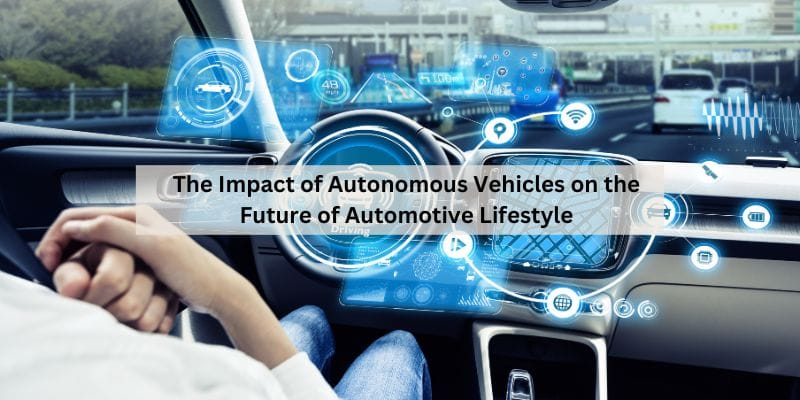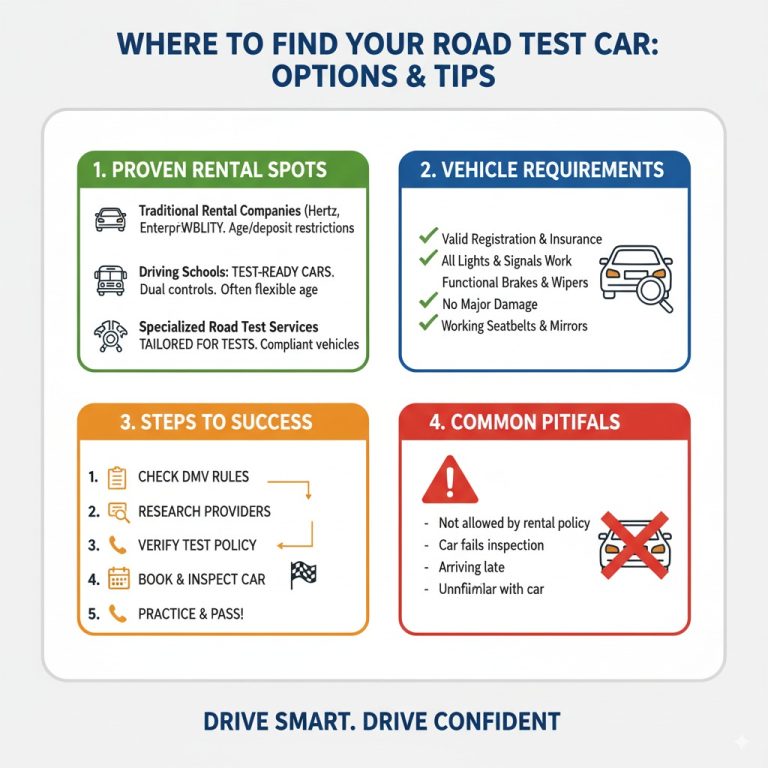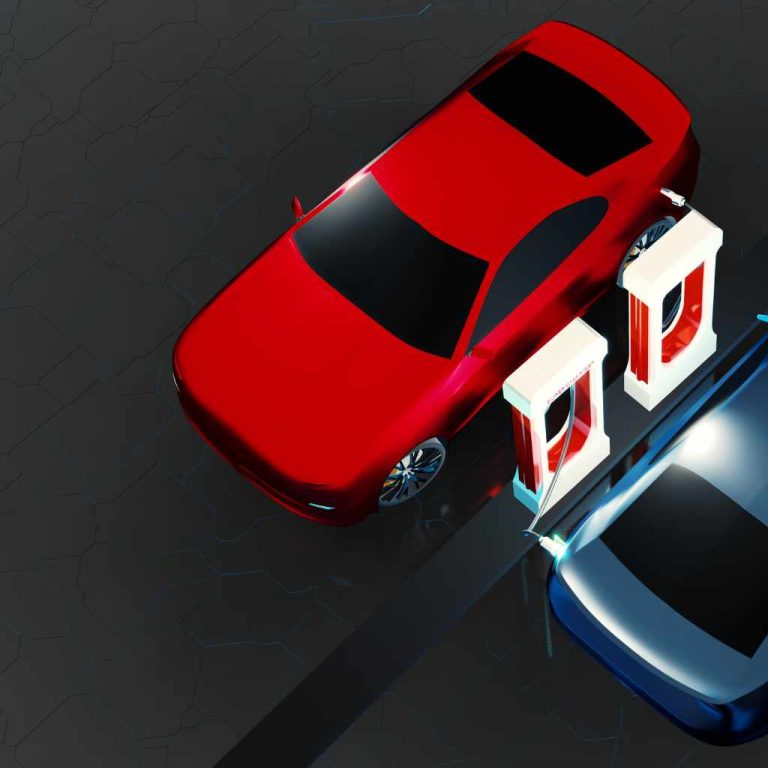The Impact of Autonomous Vehicles on the Future of Automotive Lifestyle
The impact of autonomous vehicles on the future of automotive lifestyle is a significant one, with improved safety being the immediate benefit. By reducing car accidents caused by unpredictable and reckless driving, autonomous vehicles mitigate the risk for commuters.
Additionally, the widespread use of driverless cars can lead to resource savings by eliminating the need for individuals to own their own vehicles and keeping traffic flowing smoothly, thus saving fuel and time. However, there are concerns about potential negative impacts such as increased air and noise pollution, sedentary lifestyles, energy use, traffic congestion, and sprawl.
Furthermore, the convenience of self-driving cars could reduce the need for car ownership, potentially impacting sales and profits in the long term for the automotive industry.
Redefining Mobility
The impact of autonomous vehicles on the future of automotive lifestyle is immense. With the shift in car ownership, people are moving towards a model where there is no need to own a car, saving resources and reducing congestion. The advancements in transportation with self-driving cars promise to decrease accidents and enhance mobility for those with physical limitations. It also aims to improve overall traffic conditions, saving fuel and time. However, it is speculated that autonomous vehicles may lead to increased air and noise pollution, as well as sedentary lifestyles. Despite the potential negative impacts on the automotive industry, the widespread use of autonomous vehicles holds the promise of redefining mobility in the future.
Safety And Efficiency
The impact of autonomous vehicles on the future of automotive lifestyle is significant. With a decrease in road accidents, the use of autonomous vehicles contributes to improved safety on the roads. This decrease is largely due to the elimination of unpredictable and reckless driving behaviors. Additionally, the deployment of autonomous vehicles leads to smoother traffic flow, resulting in reduced congestion and improved overall traffic conditions. Moreover, it eliminates the need for private car ownership, thus saving resources and time. The widespread use of autonomous vehicles also has the potential to positively impact energy use, productivity, and housing affordability. However, there are concerns about the potential negative impact on air and noise pollution, as well as sedentary lifestyles.
Environmental Impacts
The rise of autonomous vehicles has significant environmental impacts. One of the most significant benefits of autonomous vehicles is the potential to reduce carbon emissions. AVs are more efficient than traditional vehicles because they optimize driving routes and speeds, which reduces fuel consumption and emissions. Additionally, AVs have the potential to reduce urban sprawl, which is a significant contributor to carbon emissions. By reducing the need for parking lots and garages, AVs can free up land for green space and reduce the amount of land used for transportation infrastructure. These benefits can lead to a more sustainable future for the automotive industry and the planet as a whole.
Economic Shifts In The Automotive Industry
The introduction of autonomous vehicles is expected to have a profound impact on the traditional car sales model. With the rise of ride-sharing and subscription-based services, individuals may opt for these alternatives instead of owning a vehicle. This shift in consumer behavior could lead to a decline in personal car ownership, prompting automakers to explore new revenue models. In response, companies may focus on fleet sales to ride-sharing companies and develop subscription services for autonomous vehicles, marking a significant departure from the current sales strategies.
Social And Lifestyle Changes
The rise of autonomous vehicles is set to have a significant impact on social and lifestyle changes. One of the most notable changes will be the impact on daily commuting. Autonomous vehicles will offer a safer and more efficient mode of transportation, mitigating vehicle users’ exposure to risk while commuting to different places. Additionally, autonomous vehicles will provide access to mobility for the mobility impaired, providing a new level of freedom for those with physical limitations.
Urban Planning And Infrastructure
The rise of autonomous vehicles has numerous implications for urban planning and infrastructure. One of the most significant changes will be the reclaiming of parking spaces. With fewer cars on the road, there will be less need for large parking lots and garages. Cities can repurpose this land for parks, affordable housing, or commercial development, creating a more vibrant and livable environment.
In addition to reclaiming parking spaces, cities will need to redesign their streets and transportation systems to be more AV-friendly. This could include dedicated lanes for autonomous vehicles, smart traffic signals that communicate with AVs, and improved public transportation to reduce the number of cars on the road.
Ethical And Legal Considerations
The impact of autonomous vehicles on the future of automotive lifestyle brings about ethical and legal considerations that must be addressed. In the realm of AI ethics in autonomous driving, it is imperative to ensure that ethical guidelines are integrated into the development and deployment of autonomous vehicles. Additionally, legislation and regulation play a crucial role in shaping the future of autonomous vehicles, as they dictate the legal framework within which these vehicles operate. As autonomous vehicles become more prevalent, it is essential to navigate the complexities of ethical and legal considerations to ensure a safe and responsible integration into our automotive lifestyle.
The Future Of Work And Leisure
The emergence of autonomous vehicles is set to revolutionize the automotive lifestyle, with a significant impact on work and leisure. By reducing the risk of accidents and improving commuting efficiency, autonomous vehicles are poised to reshape the way people travel and engage in leisure activities.
This transformative technology holds the potential to redefine the future of mobility and leisure experiences.
Frequently Asked Questions
What Is The Future Impact Of Autonomous Vehicles?
Autonomous vehicles will improve safety, reducing accidents caused by unpredictable driving. They may decrease car ownership, saving resources and time. However, they could worsen pollution and traffic congestion. Automotive companies may face reduced profits due to decreased car ownership.
How Do Autonomous Vehicles Affect Our Everyday Lives?
Autonomous vehicles have a significant impact on our everyday lives. They improve safety by reducing accidents caused by human error. Additionally, they offer convenience and cost savings by eliminating the need for car ownership. With smoother traffic flow, autonomous vehicles save time and fuel, benefiting both individuals and the environment.
What Is The Impact Of Autonomous Vehicles On Society?
Autonomous vehicles have a significant impact on society. They enhance safety by reducing accidents caused by human error. Additionally, they improve traffic flow, save fuel, and reduce the need for car ownership. However, they may also contribute to air and noise pollution and lead to sedentary lifestyles.
Overall, autonomous vehicles have the potential to revolutionize transportation and reshape our daily lives.
Conclusion
The impact of autonomous vehicles on the future of automotive lifestyle is significant. The implementation of AVs would lead to improved safety on the roads, reducing accidents caused by human error. Additionally, the widespread use of autonomous vehicles could potentially decrease the need for car ownership and save valuable resources.
Overall, the future of automotive lifestyle is poised for a positive transformation with the integration of autonomous vehicles.






